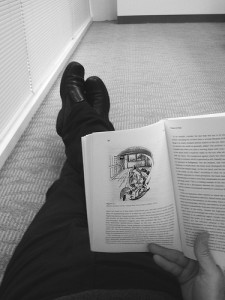Jesus and Community (3)
In chapter 1, Jesus and Israel, Lohfink attempts to bridge the connection between the first 2 petitions of the Lord’s prayer, with the re-gathering Israel:
What is really meant by the prayer, now so strange to us, that God sanctify his name? Once again the answer is given in the Old Testament, in Ezekiel 36. There it is said that the name of God has been desecrated by the dispersal of Israel among the nations. As a result of this, all the nations say: “So this is the people of God! This Yahweh must be a miserable God, if he is unable to preserve his own people from the loss of their land!” (cf. Ezek. 36:20).
Quoting from Ezek. 36:22-24, he continues:
The text clearly shows that God himself will sanctify his name. He will sanctify it by gathering Israel in the last days from all over the world, renewing it, and making it again into a holy people.
… “Sanctify your name” — this means, in other words, nothing other than “Gather and renew your people! Let it become anew the true people of God!” Jesus was obviously convinced that this eschatological gathering of the people by God had already begun now, just as the coming of the kindgom was now taking place. And Jesus was convinced that the gathering of the people and the coming of the kindgom were occurring through him. For when Jesus acted, God acted. Precisely this was Jesus’ mystery.
Lohfink further concludes (with reference to Matt 10:6) that Jesus did not envision a mission to the Gentiles. How then do the Gentiles achieve salvation? Not “become believers as a result of missionary activity; rather, the fascination emitted by the people of God draws them close.” To Lohfink, this explains why Jesus “turned so automatically to Israel alone” because “Jesus had to work in Israel, for only if the light of the reign of God shone in God’s people would it be possible for the nations to undertake the eschatological pilgrimage.” (19)
Knowing that Matt 11.8:11-12 was originally functioned as a threat directed again Israel, Lohfink draws the parable of the great banquet in Luke 14:16-24 to further describe the crisis of Israel and her failure. The Twelve functions “not only a sign promising salvation, but also a sign of judgement. At the last judgement they will testify against Israel if Israel does not repent.” (22)
—–
At this point, it is not clear as to what Israel should repent from? Lohfink seems to hint that Israel rejection of Jesus re-gathering of God’s people was indeed the issue. In light of this, are we to assume the death of Jesus simply as “God’s plan (to regather) went wrong”? Was Jesus’ mission a re-gathering of the Twelve to be light of the world through His death and resurrection, or were they just tragic consequences with which the Son of God perceived as one possible outcome? If the Jewish people had more or less rejected His call, how much of what He had called could still be considered as a regathering of Israel? Was it re-gathering, or re-constituting?
And to ask a hypothetical question — if Israel were to accept Jesus’ call, would the cross still be necessary?


 至於睇書,我通常會同時開幾本。但切忌本本一樣類型(Anson,你要上堂,無法!),否則自己混淆亂砌,揾自己笨。要留意你自己的精神狀況在一日的高低節奏:對我來說,朝早食過早餐,我精神最好,在沒有甚麼事情發生之前,可以看一些比較複雜、學術性重一點的書(
至於睇書,我通常會同時開幾本。但切忌本本一樣類型(Anson,你要上堂,無法!),否則自己混淆亂砌,揾自己笨。要留意你自己的精神狀況在一日的高低節奏:對我來說,朝早食過早餐,我精神最好,在沒有甚麼事情發生之前,可以看一些比較複雜、學術性重一點的書(
